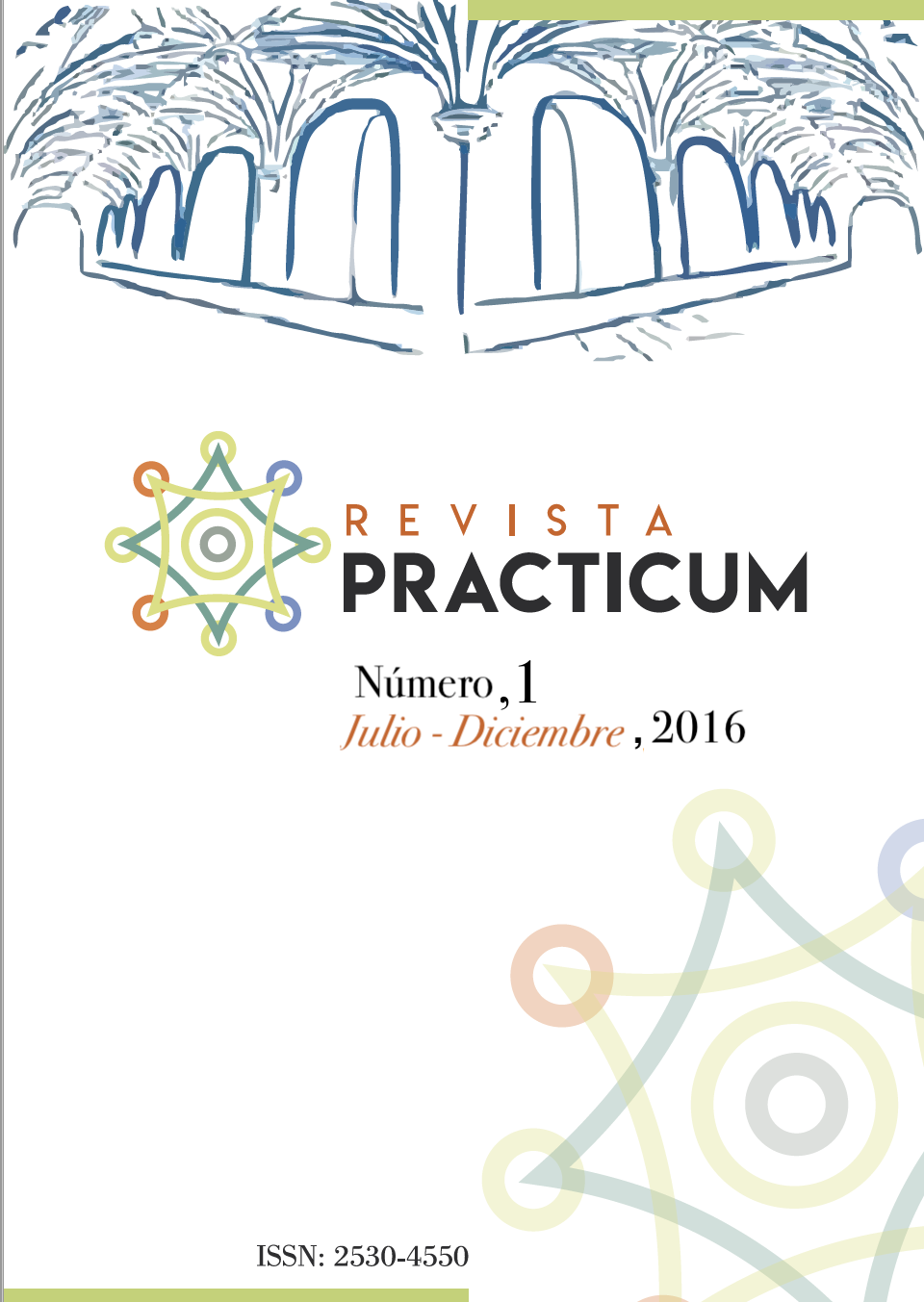Zabalza, M.(2013). The Practicum and Internships in Companies. In university education. Madrid: Narcea
Keywords:
PracticumAbstract
It is well known that the human being does not learn in a meaningful way until the learning experience is not produced, does not manipulate, does not experience... it is not experienced. And it is that people, by nature, have the need to experiment in order to successfully achieve learning, the same goes for professional learning during the practicum and external practices. That is, the period where the initial training of professionals extends to areas outside university centers and professional schools, areas in which the main thing is not to reproduce learned content but to know how to act professionally, identifying and solving problems from the knowledge acquired and the scientific-technical argumentation analyzed and built in the training institutions. In short, learning from experience in the professional context, from experiential learning. Concept with which we could encompass everything that the author Dr. Miguel Zabalza develops in this work. In it, all the essential components for this practicum and the external practices are thoroughly broken down, the learning produced outside the institutional spaces of professional training, be the most profitable for the individuals who carry it out, and turn this experience into a formative sense. The work presents a thorough, useful and argued explanation of different topics that converge and give meaning to the practicum and external practices, which are: its curricular and institutional political nature, together with the vital experience it represents for the learning of students, an ideal and unique context where it occurs. As the author relates in its first pages, the practicum is not present in most of the works on Higher Education that are recently published, a fact that contrasts with the boom in credits and its greater presence in degrees. It is true that there is a literature and a broad "state of the art" on practicum, from which we can face the most important question, namely: how do you learn in practice?, and therefore, what would be the conditions that we should consider for this learning to occur? Despite this existing knowledge, a review of the programs by the author does not recall that there is still a lack of a clear theoretical foundation in the programs; where the organizational aspects do not predominate over the curricular ones; where an impact is sought beyond mere emotional satisfaction in students; and a constant review of relations and collaboration with internship centers, with more transparent agreements and programs in line with the moments and transformations that companies are currently undergoing. In our opinion, the work becomes a good "instruction manual" very valuable when it comes to planning with sense the stay of students in different areas and internship companies. It does not stop only to describe its own nature and analyze the possible elements of a practical model; rather, it proposes indicators and criteria to evaluate and interpret what happens in the practicum, with a guide at the end of the work that all Universities should take into account when programming and training their tutors. It is also an essential manual for those companies and institutions that receive all students; and that on numerous occasions, although they know how to show their skills, they do not really know what and how to teach what they do and know. As a conclusion of this review, it is worth highlighting the clarity of the contents, the simplicity when exposing something as complex and important as the practicum and external practices for the training of professionals from all areas. Therefore, the book becomes essential as a model where the tutoring of the practicum takes centerion, and where the tutor, from an appropriate policy of the institution, is also oriented and trained on and from his work as a tutor.
Downloads
Metrics
References
Zabalza, M.(2013). El Practicum y las Prácticas en Empresas. En la formación universitaria. Madrid: Narcea
Downloads
Published
How to Cite
Issue
Section
License
Acceptance of the work implies that the author grants Revista Prácticum the exclusive rights to reproduce, distribute and sell his or her work worldwide, both in digital and paper formats, CD-ROM, etc.
Likewise, the authors shall grant Revista Prácticum the rights of dissemination, public communication on the Internet and IT networks, data buses, as well as any other portals or electronic devices for online consultation of its contents and extracts, under the conditions of the portal, repositories or databases where the work is stored.
Revista Prácticum allows authors to publish and disseminate their articles and works on their personal websites, research teams, institutional repositories and scientific databases. All this in accordance with the Creative Commons 4.0 License





8.png)








